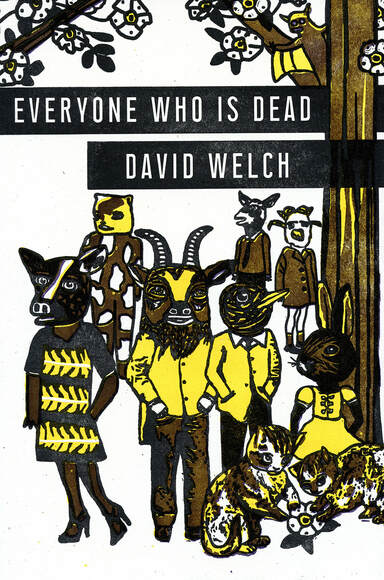- Home
- About
- Submit
- Features
- Interviews
- Book Reviews
- Previous Issues
- Blog
- Contact
-
Issue #25 Spring 2023
- Issue #25 Art Spring 2023 >
-
Issue #25 Poetry Spring 2023
>
- Emma Bolden Spring 2023
- Ronda Piszk Broatch Spring 2023
- M. Cynthia Cheung Spring 2023
- Flower Conroy Spring 2023
- Jill Crammond Spring 2023
- Sandra Crouch Spring 2023
- Satya Dash Spring 2023
- Rita Feinstein Spring 2023
- Dan Fliegel Spring 2023
- Lisa Higgs Spring 2023
- Dennis Hinrichsen Spring 2023
- Mara Jebsen Spring 2023
- Abriana Jetté Spring 2023
- Letitia Jiju Spring 2023
- E.W.I. Johnson Spring 2023
- Ashley Kunsa Spring 2023
- Susanna Lang Spring 2023
- James Fujinami Moore Spring 2023
- Matthew Murrey Spring 2023
- Pablo Otavalo Spring 2023
- Heather Qin Spring 2023
- Wesley Sexton Spring 2023
- Ashish Singh Spring 2023
- Sara Sowers-Wills Spring 2023
- Sydney Vogl Spring 2023
- Elinor Ann Walker Spring 2023
- Andrew Wells Spring 2023
- Erin Wilson Spring 2023
- Marina Hope Wilson Spring 2023
- David Wojciechowski Spring 2023
- Jules Wood Spring 2023
- Ellen Zhang Spring 2023
- BJ Zhou Spring 2023
- Jane Zwart Spring 2023
- Issue #25 Fiction Spring 2023 >
- Issue #25 Nonfiction Spring 2023 >
-
Issue #26 Fall 2023
- Issue #26 Art Fall 2023 >
-
Issue #26 Poetry Fall 2023
>
- Fasasi Abdulrosheed Oladipupo Fall 2023
- Christopher Ankney Fall 2023
- Magdalena Arias Vásquez Fall 2023
- John Peter Beck Fall 2023
- Mihir Bellamkonda Fall 2023
- Benjamin Bellas Fall 2023
- Michael Carson Fall 2023
- Kevin Clark Fall 2023
- Aaron Coleman Fall 2023
- Mark DeCarteret Fall 2023
- Denise Duhamel Fall 2023
- Brandel France de Bravo Fall 2023
- Tina Gross Fall 2023
- Amorak Huey Fall 2023
- James Kimbrell Fall 2023
- Casey Knott Fall 2023
- Stephen Lackaye Fall 2023
- Cynthia Manick Fall 2023
- Savannah McClendon Fall 2023
- John Muellner Fall 2023
- Mollie O’Leary Fall 2023
- Joel Peckham Fall 2023
- Natalia Prusinska Fall 2023
- henry 7. reneau, jr. Fall 2023
- Esther Sadoff Fall 2023
- Hilary Sallick Fall 2023
- Kelly R. Samuels Fall 2023
- Issue #26 Fiction Fall 2023 >
-
Issue #27 Spring 2024
- Issue #27 Art Spring 2024 >
-
Issue #27 Poetry Spring 2024
>
- Terry Belew Spring 2024
- Dustin Brookshire & Diamond Forde Spring 2024 Spring 2024
- Dustin Brookshire & Caridad Moro-Gronlier Spring 2024 Spring 2024
- Charlie Coleman Spring 2024
- Isabelle Doyle Spring 2024
- Reyzl Grace Spring 2024
- Kelly Gray Spring 2024
- Meredith Herndon Spring 2024
- Mina Khan Spring 2024
- Anoushka Kumar Spring 2024
- Cate Latimer Spring 2024
- BEE LB Spring 2024
- Grace Marie Liu Spring 2024
- Sarah Mills Spring 2024
- Faisal Mohyuddin 2024
- Marcus Myers Spring 2024
- Mike Puican Spring 2024
- Sarah Sorensen Spring 2024
- Lynne Thompson Spring 2024
- Natalie Tombasco Spring 2024
- Alexandra van de Kamp Spring 2024
- Donna Vorreyer Spring 2024
- Fiction #27 Spring 2024 >
- Nonfiction #27 Spring 2024 >
Book Review: Everyone Who Is Dead by David Welch
David Welch is the author of Everyone Who Is Dead (Spork Press, 2018) and a chapbook, It Is Such a Good Thing to Be In Love with You (The Laurel Review/Midwest Chapbook Series, 2015). He is the recipient of awards from the Academy of American Poets, the Poetry Society of America, and the Sewanee Writers' Conference. Welch lives in Chicago and teaches at DePaul University where he is Assistant Director of Publishing & Outreach.
|
Review
|
A Review of David Welch's Everyone Who Is Dead
Everyone Who Is Dead lures the reader down the rabbit hole, and when they resurface on the other end, they are surrounded by a flourishing Earth and well-dressed animals. Through the catalyst of nature and a varying cast of woodland creatures, David Welch paints strange, picturesque scenes that the reader can get lost in. Natural beauty is shown with images like “the orchid, its mouth a blushed pear, its green legs / thrown over the ground where the audience sifted their hands together,” which is complimented by the interactions of “the boy” and “the audience,” the recurring characters that are seen throughout Welch’s collection. The relationship of these two characters often forge a philosophical element, as the ever-questioning audience is constantly examining “the boy.” In the poem, “Everyone Who Is Dead,” “the audience” acts as an observer that is seeking answers out of “the boy’s” actions: The audience saw the boy in the distance The interactions of “the boy” and “the audience” create a dynamism that seems as though Welch is scraping at the fourth wall, using “the audience” as an inclusion of the reader as they seem to be watching a performance act out on a stage of flora, fauna, and other wildlife. In “Lives of the Rabbits,” nature is molded into a breathing organism that includes all elements living as one:
must we accept also the green The bird in these lines illustrates another limb of the tree and, throughout the poem, the reader is met with a vivid world of life and death. The elegance of nature that is sculpted throughout the poetry is contrasted by the presence of violence and death that integrates seamlessly into the lines to add to the poignancy of the world. In “As If at Its End,” this integration is created with subtlety:
like a boy left to drift alone toward the sea The mixing, and juxtaposition, of unexpected images like the “prisms of jellyfish” and the sinister, yet still mystical, images of “blood slowing in the fog” converge together on the page creating a profoundness to Welch’s poetry. The clever blending of light and dark illustrations parallel the complex settings and characters within the collection.
Everyone Who Is Dead is a striking read that snags the reader and guides them on a journey through bustling forests, deep seas, and the kaleidoscope of emotions that all these sublime elements generate. It is a prismatic and substantive read with a sophisticated narrative that calls for the reader to walk its trails over and over again. |
- Home
- About
- Submit
- Features
- Interviews
- Book Reviews
- Previous Issues
- Blog
- Contact
-
Issue #25 Spring 2023
- Issue #25 Art Spring 2023 >
-
Issue #25 Poetry Spring 2023
>
- Emma Bolden Spring 2023
- Ronda Piszk Broatch Spring 2023
- M. Cynthia Cheung Spring 2023
- Flower Conroy Spring 2023
- Jill Crammond Spring 2023
- Sandra Crouch Spring 2023
- Satya Dash Spring 2023
- Rita Feinstein Spring 2023
- Dan Fliegel Spring 2023
- Lisa Higgs Spring 2023
- Dennis Hinrichsen Spring 2023
- Mara Jebsen Spring 2023
- Abriana Jetté Spring 2023
- Letitia Jiju Spring 2023
- E.W.I. Johnson Spring 2023
- Ashley Kunsa Spring 2023
- Susanna Lang Spring 2023
- James Fujinami Moore Spring 2023
- Matthew Murrey Spring 2023
- Pablo Otavalo Spring 2023
- Heather Qin Spring 2023
- Wesley Sexton Spring 2023
- Ashish Singh Spring 2023
- Sara Sowers-Wills Spring 2023
- Sydney Vogl Spring 2023
- Elinor Ann Walker Spring 2023
- Andrew Wells Spring 2023
- Erin Wilson Spring 2023
- Marina Hope Wilson Spring 2023
- David Wojciechowski Spring 2023
- Jules Wood Spring 2023
- Ellen Zhang Spring 2023
- BJ Zhou Spring 2023
- Jane Zwart Spring 2023
- Issue #25 Fiction Spring 2023 >
- Issue #25 Nonfiction Spring 2023 >
-
Issue #26 Fall 2023
- Issue #26 Art Fall 2023 >
-
Issue #26 Poetry Fall 2023
>
- Fasasi Abdulrosheed Oladipupo Fall 2023
- Christopher Ankney Fall 2023
- Magdalena Arias Vásquez Fall 2023
- John Peter Beck Fall 2023
- Mihir Bellamkonda Fall 2023
- Benjamin Bellas Fall 2023
- Michael Carson Fall 2023
- Kevin Clark Fall 2023
- Aaron Coleman Fall 2023
- Mark DeCarteret Fall 2023
- Denise Duhamel Fall 2023
- Brandel France de Bravo Fall 2023
- Tina Gross Fall 2023
- Amorak Huey Fall 2023
- James Kimbrell Fall 2023
- Casey Knott Fall 2023
- Stephen Lackaye Fall 2023
- Cynthia Manick Fall 2023
- Savannah McClendon Fall 2023
- John Muellner Fall 2023
- Mollie O’Leary Fall 2023
- Joel Peckham Fall 2023
- Natalia Prusinska Fall 2023
- henry 7. reneau, jr. Fall 2023
- Esther Sadoff Fall 2023
- Hilary Sallick Fall 2023
- Kelly R. Samuels Fall 2023
- Issue #26 Fiction Fall 2023 >
-
Issue #27 Spring 2024
- Issue #27 Art Spring 2024 >
-
Issue #27 Poetry Spring 2024
>
- Terry Belew Spring 2024
- Dustin Brookshire & Diamond Forde Spring 2024 Spring 2024
- Dustin Brookshire & Caridad Moro-Gronlier Spring 2024 Spring 2024
- Charlie Coleman Spring 2024
- Isabelle Doyle Spring 2024
- Reyzl Grace Spring 2024
- Kelly Gray Spring 2024
- Meredith Herndon Spring 2024
- Mina Khan Spring 2024
- Anoushka Kumar Spring 2024
- Cate Latimer Spring 2024
- BEE LB Spring 2024
- Grace Marie Liu Spring 2024
- Sarah Mills Spring 2024
- Faisal Mohyuddin 2024
- Marcus Myers Spring 2024
- Mike Puican Spring 2024
- Sarah Sorensen Spring 2024
- Lynne Thompson Spring 2024
- Natalie Tombasco Spring 2024
- Alexandra van de Kamp Spring 2024
- Donna Vorreyer Spring 2024
- Fiction #27 Spring 2024 >
- Nonfiction #27 Spring 2024 >


